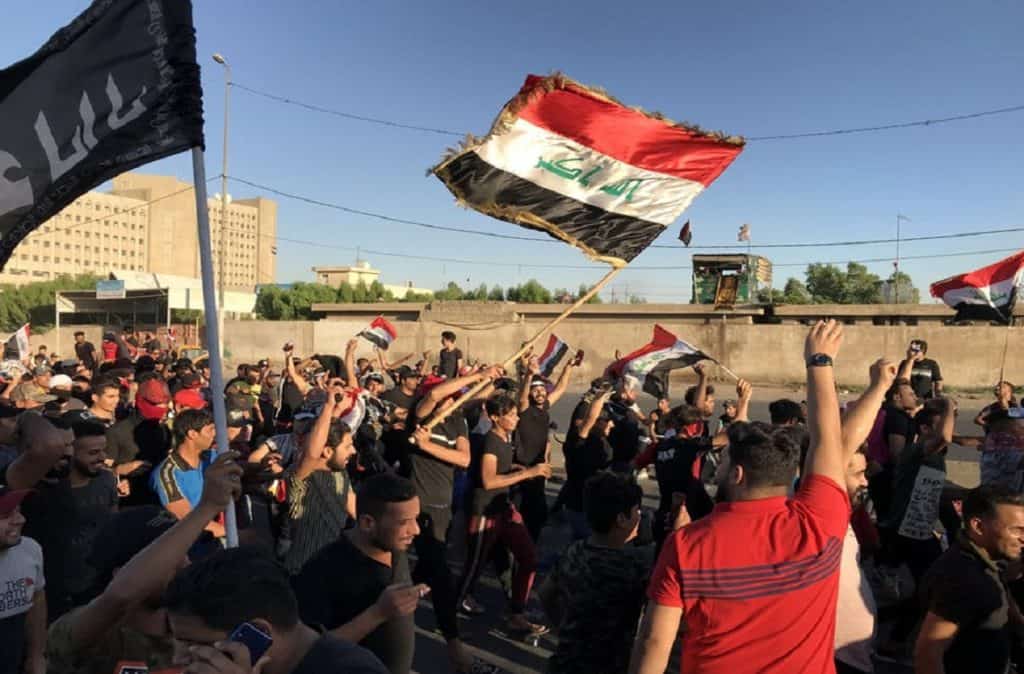By Denis Korkodinov
Iraq faced a difficult choice: either to fulfill the demands of participants in social unrest and, thus, accept a coup, or suppress the protest movement. The latter option, apparently, may not bring positive results, since the protesters received external support not related to Baghdad politics. In such circumstances, the only way of the Iraqi leadership to overcome the crisis could be to appeal for the help of Moscow.
Participants in mass demonstrations, as the development of events shows, do not intend to make any concessions. As in Lebanon, they demand a reformatting of the entire state system and advocate for the so-called “clean” government, in which there will not be any of the former government officials accused of corruption and nepotism. However, the main problem is that there is no one to replace the former government representatives.
Therefore, it is unlikely that anything will change from which government in Iraq will be formed later. In addition, the active intervention in Iraqi affairs by Washington does not allow us to argue that Baghdad will be able to deal with the consequences of the crisis on its own. It is another matter if the Iraqi leadership calls for help from international partners loyal to it. For example, Russia, given the fact that Baghdad has had a Common Information Center for about 5 years, which Moscow has been using to coordinate actions in Syria.
And if a coup d’etat takes place in Iraq, Russia will most likely be forced to look for another place to base its information center, which will certainly affect its military successes in Syria. For this reason, Moscow can and should intervene in the Iraqi events in order to prevent another series of “Arab spring” in this country.
Protesters in Iraq have already achieved certain results. They were able to force the head of the cabinet, Adil Abdul-Mahdi, to resign. Now they are opposed to Iranian participation.
The situation is such that due to the anti-Iranian campaign, not one of the political parties in Iraq, one way or another connected with the Ayatollah regime, will be able to get an absolute majority in the upcoming elections.
In addition, using the domestic political crisis in the country, Iraqi Kurds can reiterate their plans to gain independence. In such circumstances, Tehran will lose a significant resource of influence on ongoing regional events. Based on this, Moscow will also be quite difficult to conduct business in Iraq if the pro-Iranian lobby does not have authority here.
The situation is complicated by the fact that a political coalition led by Muktada al-Sadr refused to nominate his candidate for the country’s prime minister. This allows the previous cabinet, taking advantage of the transition period, to remain in power indefinitely. Such a state of affairs can provoke large-scale social unrest, as a result of which there is a risk of the spread of protest anger exponentially. And in order to restore order, the authorities of Baghdad will need Russia.
(The opinions expressed in this article are solely those of the author and do not necessarily reflect the views of World Geostrategic Insights)







